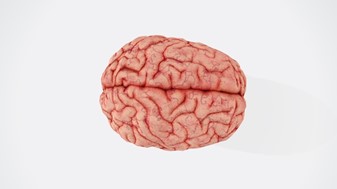Brenda McGrane of Iowa is a cytology graduate of the Mayo Clinic who has worked alongside industry leaders at both the Mayo Clinic and Stanford University Medical Center. In the following article, Brenda McGrane dispels some of the common misconceptions about strokes, along with who is most at risk.
Some people believe that strokes only happen to the elderly, or that they occur without warning signs. Unfortunately, these are among a large pool of myths and misconceptions floating around regarding the matter. Believing these myths can be dangerous, putting many people at risk.
Strokes can affect anyone regardless of their age, often exhibit warning signs, and may even be preventable with the proper lifestyle choices. Prompt treatment, moreover, will often significantly mitigate the potential long-term effects.
Brenda McGrane of Iowa says that even though the risk of stroke does increase with age, even children and young adults can experience them. In fact, the Centers for Disease Control and Prevention reports that about 34% of people hospitalized for stroke in 2009 were younger than 65 years old.
For example, take high blood pressure, also known as hypertension. It is the leading stroke culprit and the most important risk factor that can be controlled. Keeping blood pressure levels in check through lifestyle adaptations and medication will significantly cut down the risk of stroke.
Similarly, Brenda McGrane of Iowa explains that lifestyle changes can manage other risk factors. High cholesterol levels can lead to plaque formation in the arteries, smoking damages blood vessels and speeds up the formation of blood clots, and obesity only adds to these health complications.
Brenda McGrane of Iowa notes that people may also experience confusion, have difficulty speaking, struggle to understand speech, feel dizzy, lose their balance, or suffer from an unexplained severe headache before a stroke occurs.
Men and women may experience traditional stroke signs like sudden numbness on one side of the body, difficulty speaking, and a severe headache. However, Brenda McGrane of Iowa points out how research has indicated that women might have a different symptom set.
For instance, women are more prone to show non-traditional stroke symptoms, including loss of consciousness, generalized weakness, shortness of breath, confusion, sudden behavioral change, agitation, hallucinations, nausea, vomiting, pain, seizures, and even hiccups. These less typical symptoms could cause a delay in diagnosis and treatment.
Hormonal variations across a woman's lifespan, including the use of birth control pills, pregnancy, and post-menopausal hormonal therapy, can also influence stroke risk.
 Myth: Strokes Result in Inevitable, Permanent Disability
Myth: Strokes Result in Inevitable, Permanent DisabilityHere's some comforting news: not all stroke effects are lifelong, and there's room for recovery. The human brain has fantastic skills of adaptability it can restructure its functions to some extent through a mechanism called neuroplasticity. This process, coupled with rehabilitation exercises such as physical therapy, occupational therapy, and speech-language therapy, can significantly aid in recovery to improve a patient's quality of life after a stroke.
When it comes to lifestyle choices and health conditions, the good news is that many of these risk factors can be mitigated. By making changes such as embracing a healthy diet, incorporating regular physical activity into daily routines, quitting smoking, keeping alcohol consumption within moderate limits, and diligently managing any chronic health conditions, the risk of stroke will be significantly cut down. This proactive approach to health can drastically decrease one's overall stroke risk, regardless of their family history.